As 2019 draws to a close we would like to thank all who have supported and worked with AMF this year as without donors, distribution partners, volunteers and pro bono supporters we would not be able to do what we do in contributing to the fight against malaria. Thank you!

Future distributions
There remains a huge need for nets. The gap for the next two years runs into tens of millions of nets. AMF is involved in discussions with a number of countries requiring millions of nets each for the period 2020 and 2021. AMF’s immediate funding gap is many tens of millions of dollars.
We will publish commitments as they are made.

482,000th donation and over US$226 million raised so far! (getting close to a quarter of a billion!)
We are thrilled to have recently received our 482,000th donation, with most donations ranging from a few dollars (and £, €, CAN$, NZ$, AUS$, bitcoin and more) to many thousands.
We are so grateful for your support. Thank you!

Tax-Deductibility
We now have tax-deductible status in a dozen countries. We continue to assess the need for tax-deductibility status in other countries, some of which are already in the application stage and we hope to complete in the very near future.

AMF top ranked!
AMF has again been top-ranked by the two leading organisations 'dedicated to finding
outstanding giving opportunities'.
GiveWell has ranked AMF a top charity, for the eighth
time in nine years
The Life You Can Save has AMF as a top-ranked charity for the ninth year in a row

A suggestion for the Christmas/Holiday season!
Donate nets instead of gifts.
We send the recipient/s an email (on a date you choose e.g. 25th Dec) with your
personal message and a link to their 'gift page', allowing them to follow the progress
of their nets.
May we wish you a very happy and healthy 2020!
Rob, Andrew, Peter, Julian, Jenny, Shaun, Aisling and David
|
 We have now reached a total raised of US$225,000,000 since AMF started and the donation that took us past that milestone was one from Tampere, Finland! Kiitos!
This equates to the funding of more than 104 million nets to protect 187 million people and an expected impact, once all nets are distributed, of more than 50 to 60 million cases of malaria averted, 70,000 to 80,000 lives saved, and economic improvement of US$2.7billion.
We have also just passed 480,000 donations received, with this coming from over 126,830 people in 192 countries!
As always, our sincere thanks to everyone for their wonderful support and generosity.
|
A short update on activities going on this month.
-
In Uganda, the first results of the study into the effectiveness of a new type of net have been published. Read more here. Our PDM partner has completed the 30-month PDM in some districts in the Eastern region and all data will be entered in December.
-
In DRC, the distribution of 1.5 million nets in Équateur province has been completed. See photos below. Distribution data has been sent to Kinshasa, where it is being entered into AMF's database. In Haut Katanga, the registration of 1.4 million households has begun with a pilot of electronic data collection in three of the 27 health zones. This will be the first time that our distribution partner, SANRU (Santé Rurale), will conduct electronic data collection and this will be a chance to gain experience at scale before the registration of all provinces in 2020 and 2021 is performed electronically. This is one of the largest provinces in DRC where 4.1 million nets will be distributed in February and March. Registration in Sud Ubangi province begins on 17th December. Significant flooding has caused some disruption to the distribution schedule with an estimated 150,000 people internally displaced.
-
In Togo, 3.5 million nets are being ordered for the 2020 campaign, following the signature of an agreement last month. Given evidence in some locations of insecticide resistance, we are considering a possible purchase of PBO nets.
-
AMF is still hiring for two positions, an Operations Manager and a Full Stack Developer, with an application deadline of 6th January 2020
-
In Ghana, we have completed the 9-month post-distribution monitoring (PDM), and we will discuss the results with the National Malaria Control Programme (NMCP) to understand what actions can be taken to improve net usage. The next PDM will take place in March 2020.
-
In Malawi, our PDM partner has finished the first round of PDMs. Data is being imported into our Data Entry System, after which it will be analysed.
-
In Guinea, PDMs will begin in February 2020 and we will shortly select our PDM partner. Investigations into a possible theft of AMF nets are almost complete (with positive news), and we will post an update in the next two weeks.
-
In PNG, our partner RAM continues to distribute nets on a rolling basis. Distributions have been completed in 6 of the 8 provinces scheduled for 2019, with 650,000 nets distributed. The reminder of the one million nets funded for 2019, 350,000, are scheduled to be distributed in January and February 2020. Nets are on their way to PNG for the first province, Milne Bay, that will receive AMF-funded nets in the 2020 campaign with net orders for additional provinces being placed shortly.
-
In Zambia, the 18 months PDM in Eastern province is now complete and our partner organisation is currently entering the data into AMF’s database.
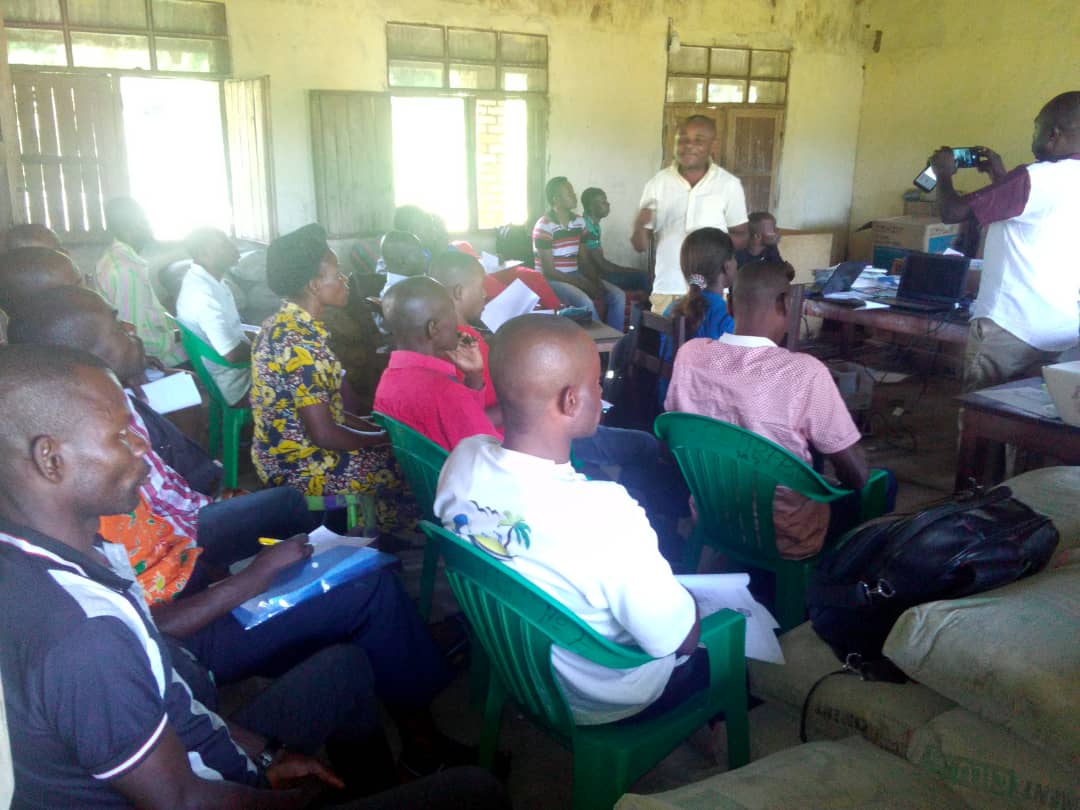





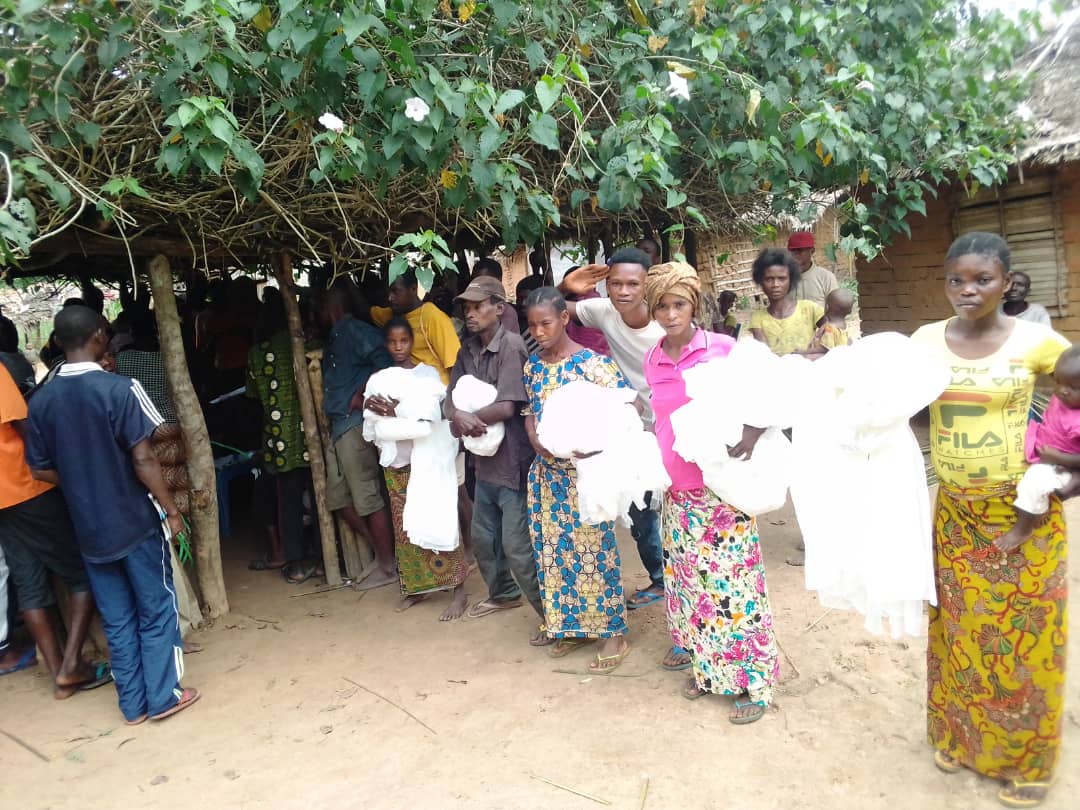

|

Summary
AMF funded the largest trial ever undertaken to assess the effectiveness of a new type of net in dealing with those malaria-carrying mosquitoes that are developing some level of resistance to the insecticide used on nets. The results of the first 18 months of the trial have just been released.
The net type being assessed was the ‘PBO net’, so called as piperonyl butoxide is added to the net to counteract the resistance mechanism in the mosquito, thereby allowing the insecticide on the net to work as usual and kill the mosquito.
The results show that both conventional nets and PBO nets reduced malaria prevalence. PBO nets were more effective, both at killing mosquitoes and at reducing malaria in the population. Specifically, after 6 months (of usage) PBO nets were 26% more effective at reducing malaria, after 12 months 27% better, and after 18 months 16% better.
PBO nets are currently more expensive than conventional LLINs. However, manufacturing capacity is growing and, as it does, PBO nets are likely to become more attractive compared to conventional nets in countries (like Uganda) of high resistance.
Detail
The trial used an innovative design, being conducted as part of Uganda’s nationwide net campaign which began in 2017. It assessed new nets in the context of a mass campaign rather than in a separate field trial. AMF provided 6 million PBO nets and 6 million conventional nets to the campaign and the study took place across 104 districts, approximately half the population and land area of the country.
Data was analysed from blood tests of over 23,000 children 2 to 10 years old. After 18 months, malaria prevalence had declined with the use of both conventional nets and PBO nets. PBO nets were more effective in reducing malaria prevalence at each of the time points – 6, 12 and 18 months. This was reinforced by a very significant effect on the mosquito population. After 12 months, households supplied with the PBO-treated nets had 80% fewer malaria-carrying mosquitoes compared to households using conventional LLINs.
The results therefore suggest that although both PBO and conventional nets were effective, PBO nets provided better protection against malaria in the setting of high-level insecticide resistance.
AMF’s approach is to evaluate any malaria resistance data in an area to receive nets, then apply the most cost-effective net intervention on a region-by-region or country-by-country basis. We do this by applying the research to country data, and work in close collaboration with national malaria programme teams and other partners. We strongly encourage more data collection on resistance patterns and the nature of that resistance, and will continue to encourage research into this critical area.
AMF is very pleased that the research concluded on time, on budget and gained additional support from DFID (for the 18 month results) and The Gates Foundation (for the 24 month results to come).
We would like to thank the teams at the Liverpool School of Tropical Medicine, London School of Hygiene and Tropical Medicine and the Makerere University Kampala for their hard work throughout the study.
We will add a link to the publication as soon as it is available, which we expect to be shortly.
|

AMF has signed an agreement with the DRC Ministry of Health to fund 16.2 million nets for distribution from June 2020 to March 2021. This represents 67% of DRC’s long-lasting insecticide treated net (LLIN) need for the 2020/21 portion of their three-year rolling universal coverage campaign.
DRC is one of the two most malarious countries in the world with malaria responsible for the deaths of at least 100 children under 5 each day in DRC alone. Malaria is one of the primary health issues in DRC, with high incidence levels seen across the majority of the country.
The nets will be distributed in seven of DRC's 26 provinces, specifically:
-
Kinshasa: 4.1m nets to protect 7.4m people, distribution during Q2/Q3 2020
-
Kongo Central: 2.6m nets to protect 4.7m people, distribution during Q2/Q3 2020
-
Tshopo: 2.2m nets to protect 4m people, distribution during Q3/Q4 2020
-
Haut Uele: 1.2m nets to protect 2.2m people, distribution during Q3/Q4 2020
-
Ituri: 3.6m nets to protect 6.5m people, distribution during Q3/Q4 2020
-
Maniema: 1.7m nets to protect 3m people, distribution in Q1 2021
-
Bas Uele: 0.8m nets to protect 1.4m people, distribution in Q1 2021
In total, 29 million people will be protected from the bites of malaria-carrying mosquitoes.
These nets have the potential to play a major part in reducing deaths and illness. This quantity of nets could be expected to prevent 10,500 deaths, 5 million cases of malaria and make a material impact on the economy of DRC. It is estimated that the improvement in GDP (Gross Domestic Product), a measure of economic performance, would be about USD 385 million.
AMF allocates individual donations to specific distributions and so far we have allocated 50,310 individual donations from 12,990 donors from 105 countries. These figures will increase as further donations are allocated. Many donations, large and small, help fund these nets.
We will report openly on progress and performance throughout and after the distribution.
Key elements of our agreement include:
-
AMF is funding 16,200,000 LLINs for distribution in 2020/21
-
This is a co-funding partnership with non-net costs (shipping, pre-distribution, distribution) funded by the Global Fund
-
To support accurate data gathering, re-checks of net need numbers will take place by re-visiting a material number of households chosen at random.
-
Household-level data will be collected on paper or using electronic-devices and then entered into AMF’s Data Entry System (DES) for analysis and verification. This, and the above elements combined, are the basis for a highly accountable distribution.
-
Post-distribution monitoring of net use and condition (PDMs) will take place every nine months for two and a half years in all districts. AMF will fund this.
Further information via the dedicated distribution page
Other DRC distributions
2019 Equateur and Sud Ubangi
2019 Tanganyika, Haut Katanga and Haut Lomami
|
A short update on activities going on this month.
-
AMF is hiring for two exciting positions - an Operations Manager and a Full Stack Developer.
-
In DRC, the distribution of 1.5 million nets in Équateur province began on 17th October and is being wrapped up in all health zones. Distribution data is being validated and sent to Kinshasa, where it will be entered into AMF's database. In Haut Katanga, the registration of 1.4 million households will now take place with a pilot of electronic data collection in three of the 27 health zones. This will be the first time that our distribution partner, SANRU (Santé Rurale), will conduct electronic data collection and will be a chance to gain experience at scale before the registration of all provinces in 2020 and 2021 is performed electronically. This has pushed back the registration to November. We have signed an agreement with our data entry partner, AGAPE, to put in place a data entry centre in Kinshasa to enter into AMF’s database the registration data collected on paper from the households in the remaining 24 health zones.
-
In Togo, a new agreement has been signed with the Ministry of Health to fund 3.5 million nets for the 2020 campaign. The 24-month PDM has been carried out in all four regions (Savanes, Kara, Centrale and Plateaux) that received 2.4 million nets in 2017. Data was collected using electronic devices and will be sent to AMF shortly. Photos below show the challenges of reaching randomly selected households during the current rainy season.
-
In Ghana, our PDM partner World Vision has completed data collection for the 9-month PDMs in regions that received AMF nets. Data was collected with electronic devices and 1.5% of all households that received AMF-funded nets were visited. The sleeping space coverage across these areas is 62% and the next step will be to discuss this with the National Malaria Control Programme to understand what actions can be taken to improve net usage.
-
In Malawi, our partner the Malawi Red Cross Society has finished PDMs in Central region and data will shortly be imported into our Data Entry System. We have shared initial results with the National Malaria Control Programme who are considering actions to be taken to increase net usage where necessary.
-
In Guinea, we are tendering for a PDM partner to carry out post-distribution monitoring at 9, 18 and 27 months across 1.5% of all households that received AMF-funded nets, collecting data electronically. PDMs will begin in February 2020. Investigations into a possible theft of AMF nets are ongoing, and we will provide a dedicated update in November.
-
In Uganda, our PDM partner organisation Malaria Consortium, with their implementing partner PACE, is carrying out the 30-month PDM in the Eastern region.
-
In PNG, our partner RAM continues to distribute nets on a rolling basis. Distribution has been completed in 5 of the 8 provinces scheduled for the year, with distribution ongoing in the Autonomous Region of Bougainville (ARoB, previously known as North Solomons province). More than 500,000 nets have been distributed in 2019. Orders have been placed for the first province that will receive AMF-funded nets in the 2020 campaign, Milne Bay.
-
In Zambia, the next PDM to take place will be in Eastern province at 18 months post distribution. We have signed an agreement with our partner CHAZ to carry out this work in October and November.





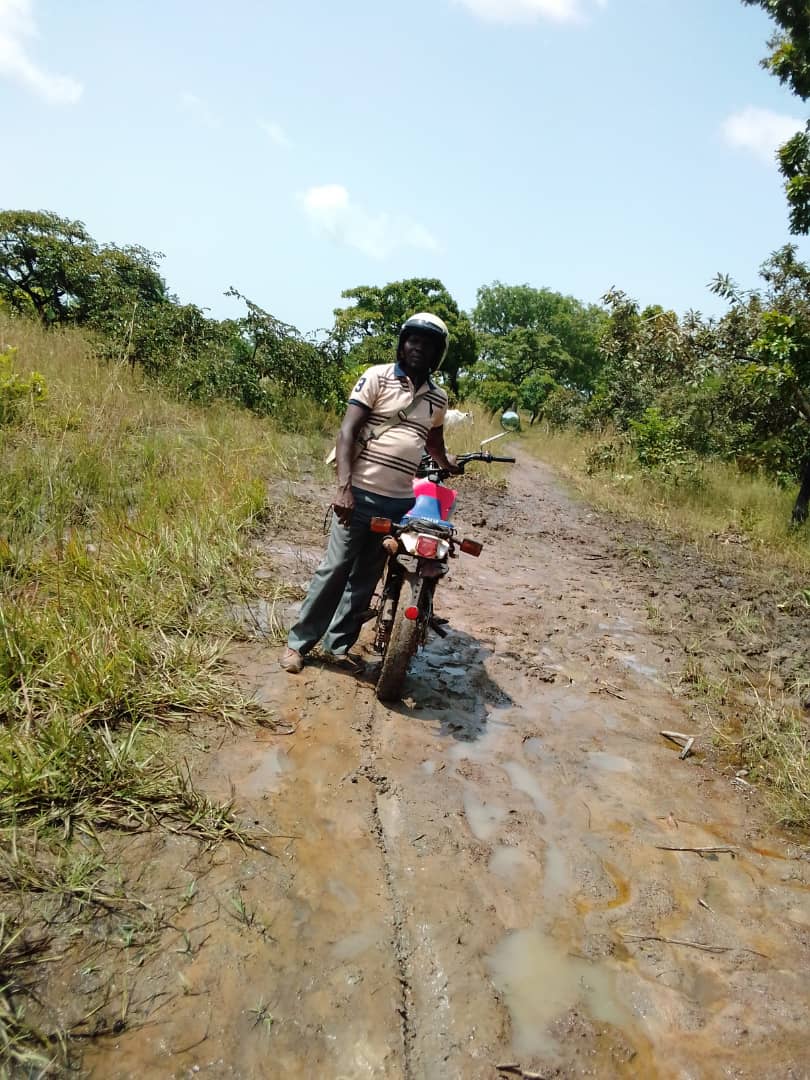





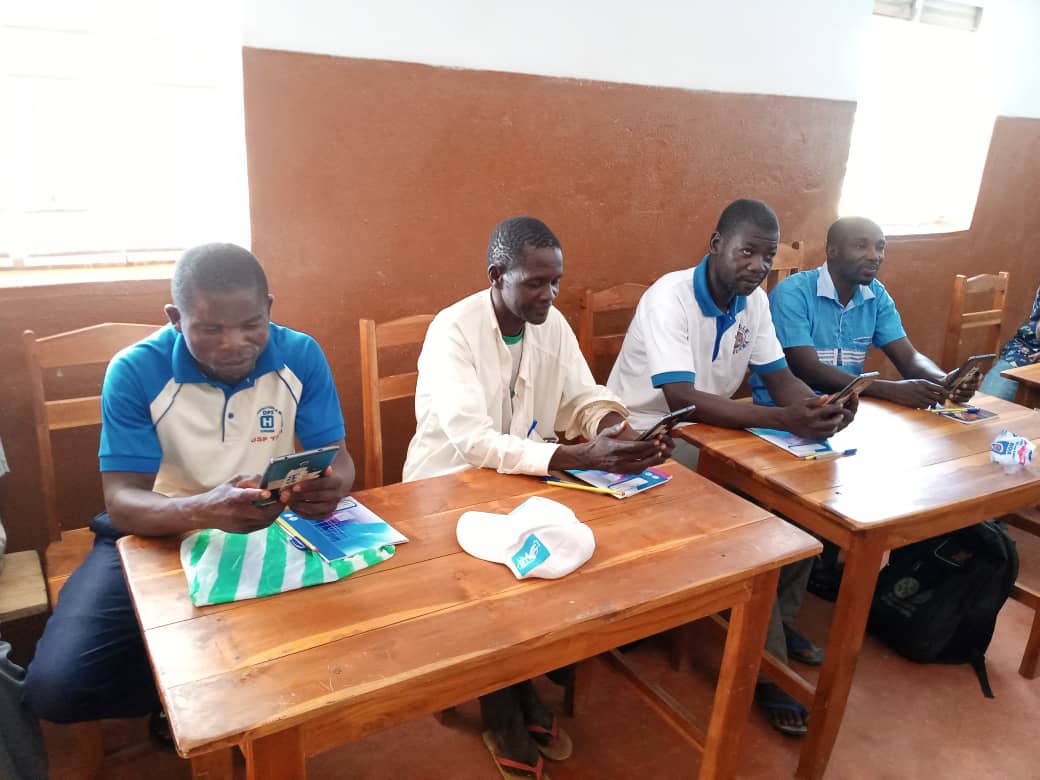
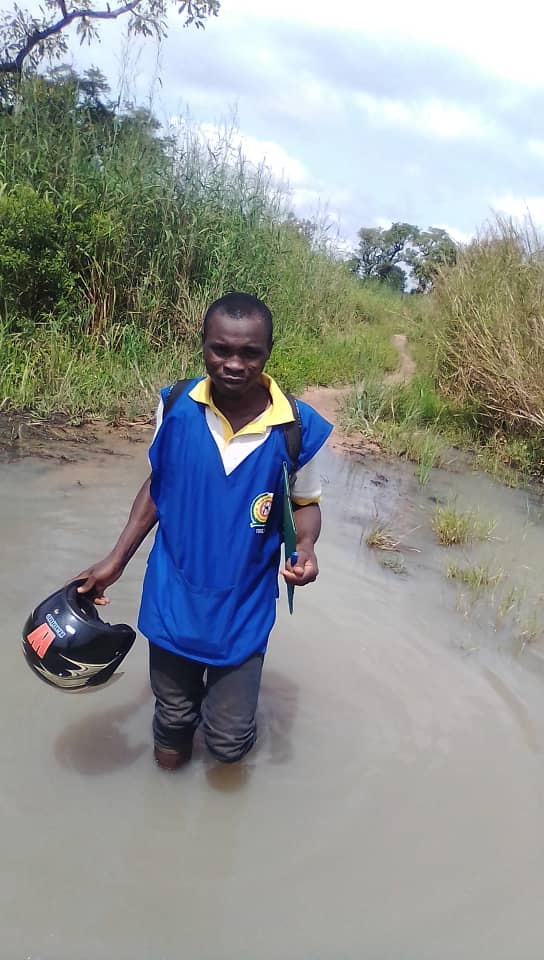
|
 AMF has signed an agreement with the Togolese Ministry of Health to fund 3.5 million nets for distribution from June to August 2020. This represents 60% of Togo's long-lasting insecticide treated net (LLIN) need for the universal coverage campaign. The last campaign was in 2017 where AMF funded 2.4 million nets.
The nets will be distributed in four of Togo's five regions: Kara, Centrale, Plateaux and Maritime and will protect 6.3 million people.
The latest Malaria Indicator Survey showed that all of Togo’s regions have a malaria problem that needs to be tackled, with the worst affected being Plateaux region where 47% of children aged 6 to 59 months show a positive result to a malaria microscopy test.
High prevalence may be due in part to increasing levels of insecticide resistance and AMF is evaluating the data to judge whether malaria outcomes can be improved if a portion of the nets funded were PBO nets, as these nets have shown better capability against insecticide-resistant mosquitoes.
The total of 3.5m nets have the potential to play a major part in reducing deaths and illness from malaria. This quantity of nets could be expected to prevent 2,300 deaths, 1.2 million cases of malaria and make a material impact on the economy of Togo. It is estimated that the improvement in GDP (Gross Domestic Product), a measure of economic performance, would be about US$83 million.
AMF allocates individual donations to specific distributions and so far we have allocated 5,220 individual donations from 3,967 donors from 64 countries. We are allocating more donations now so these figures will increase. Many donations, large and small, help fund these nets.
We will report openly on progress and performance throughout and after the distribution.
Key elements of our agreement include:
-
AMF is funding 3,538,200 LLINs for distribution in 2019
-
This is a co-funding partnership with non-net costs (shipping, pre-distribution and distribution costs) funded by the Global Fund
-
To support accurate data gathering
- all registration data will be collected using electronic devices before being imported into AMF's Data Entry System (DES) for analysis and verification
-
all data collectors will be aware that a random selection of 5% of the households that each register will be re-visited
-
AMF will fund an independent monitoring organisation to be present during registration (and during distribution) in a material number of villages selected at random
-
The above elements are the basis for a highly accountable distribution
-
Post-distribution monitoring of net use and condition (PDMs) will take place every nine months for two and a half years in all districts. AMF will fund this.
|

AMF's activities and commitments are steadily increasing, with expected annual distributions of over 20 million nets in the coming years. As a result, AMF is adding to the technology team and is now seeking exceptional candidates for the role of Full Stack Developer, specialising in ASP.Net, VB.Net and SQL Server.
Reporting to AMF's Head of Technology, and working closely with all other members of the AMF team, the successful candidate will have the following skills and experience:
Coding
- ASP.Net, VB.Net, SQL Server; level of competence: excellent; likely years' experience: 5
-
.Net Core, C#; level of competence: good; likely years' experience: 1 to 2
General
- Strong analytical capabilities – for both the website functionality and database design
-
Able to focus on detail whilst retaining the bigger picture
-
Strong project and time management skills
-
Self‐motivated with the ability to work to deadlines
-
Strong communication skills at both a technical and non‐technical level
Additional skills
-
Knowledge of non-web coding - i.e. console apps, desktop apps, web services - which may be required to support the site or back‐office users
-
Knowledge and experience of source-control solutions for code (specifically Git)
- Awareness of social media platforms and how to best integrate/exploit them
The successful candidate is likely to be in the UK/Europe/Africa time zones.
Job description and details of how to apply.
|
 AMF's activities and commitments are steadily increasing, with expected annual distributions of over 20 million nets in the coming years. As a result, AMF is adding to the operations team and is now seeking exceptional candidates for the role of Operations Manager.
Reporting to AMF's Operations Director, and working closely with all other members of the AMF team, the successful candidate will
-
speak fluent French and English, have excellent interpersonal skills and be able to construct and maintain strong working relationships
-
have exceptional organisational skills, with an interest in managing projects to improve outcomes for the poorest communities
-
have strong analytical skills, attention to detail and Excel capability
-
be open, collegiate and enjoy working in a small, highly impactful team
-
be willing to travel to Africa between 6 and 10 weeks per year
-
be comfortable learning about applying their skills to AMF's internal operations
Prior experience in international development is not necessary.
Members of the AMF team work remotely. AMF meets all the costs of shared office space where this is preferred.
The successful candidate is likely to be in the UK/Europe/Africa time zones.
Job description and details of how to apply.
|
A short update on activities going on in-country this month.
-
In DRC, preparations are being made for the distribution of 1.5 million nets in Équateur province, which is due to begin mid-October. Nets have arrived in province and are being sent to the health zones in the correct quantities according to registration data. Nets are also arriving in Sud Ubangi province, where the registration of 600,000 households will begin in the coming weeks using electronic devices. Half the nets purchased were PBO nets, and half standard nets, and the effectiveness of these nets will be monitored. In Haut Katanga, registration of 1.4 million households will take place in October using paper forms. The printing of these forms is complete and we are engaging with our data entry partner, AGAPE, to put in place a data entry centre in Kinshasa. 8.4 million nets have been produced for the provinces of Tanganyika, Haut Katanga and Haut Lomami and are being shipped to the port of Dar Es Salam in Tanzania, and from there to Eastern DRC.
-
In Zambia, our partner CHAZ has just finished post-distribution monitoring in Western province, completing the first round of PDMs in all four provinces receiving AMF-funded nets. Across these provinces, the sleeping space coverage is 65%, with a hang up rate of 81%. This is low and we are investigating with our partners in country. One explanation is that AMF nets are generally being used, but too few were given out during distribution to cover all sleeping spaces. 3.0 million nets were distributed in 2018.
-
In Ghana, our partner World Vision has completed data collection for the 9-month PDM in Upper East region using electronic devices. Photos below. The results of the PDM in Brong Ahafo region have been imported into AMF's database and show a sleeping space coverage of 84% at 9 months post distribution.
-
In Malawi, our partner the Malawi Red Cross Society has collected PDM data in 6 districts in Southern region, which show an average sleeping space coverage of 73% at 9 months post distribution. Data is currently being collected in Central region.
-
In Guinea, we are currently investigating a possible theft of AMF nets and are working closely with all partners to 1) establish if the nets recovered in Mali are AMF-funded nets, and 2) conduct, as necessary, a thorough audit of the movement of all nets in country.
-
In Uganda, lists of specific households in specific villages, randomly selected by AMF, that will visited during PDM activity have been shared with our partner organisation Malaria Consortium for the 30-month PDM taking place in the Eastern region. Results from the 24-month PDM in selected districts in the Western region show a sleeping space coverage of 83%.
-
In PNG, our partner RAM continues to distribute nets on a rolling basis. So far in 2019, more than 395,000 nets have been successfully distributed in the provinces of Southern Highlands, Hela, Oro and Central. Distribution is ongoing in the New Ireland and North Solomons (ARoB) provinces. In total, about 1.0 million nets will be distributed during 2019. PDM activity has just been completed in Milne Bay, two years after the distribution, and data is being entered for review.
-
In Togo, preparations are taking place for the 24-month PDM which will take place in all four regions (Savanes, Kara, Centrale and Plateaux) that received 2.4 million nets in 2017. Data will be collected using electronic devices.


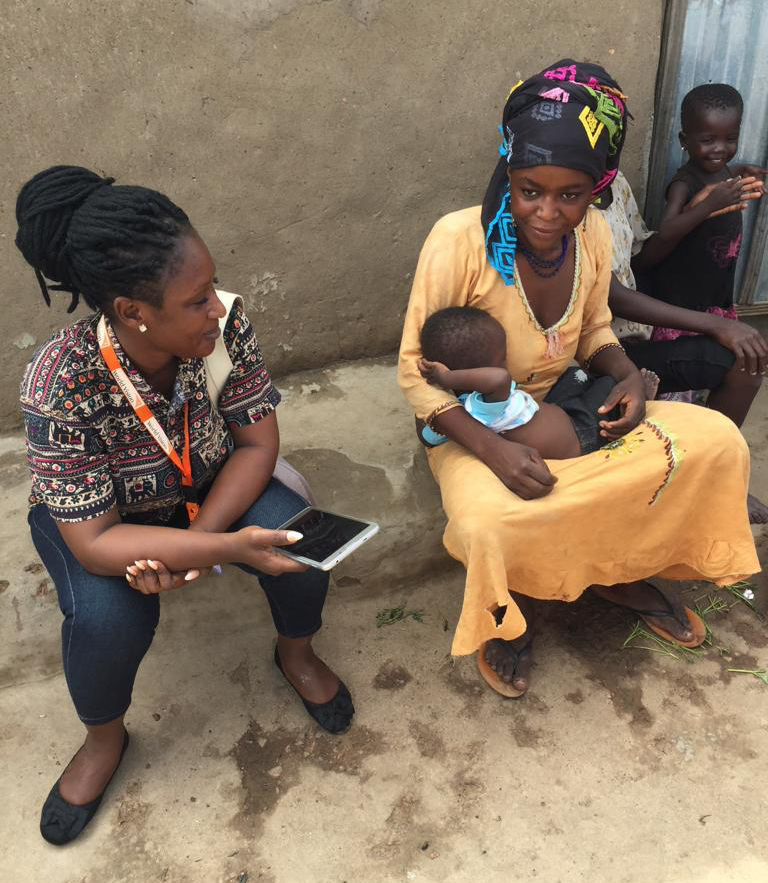






|
Summary: It is possible that a number of tens of thousands of AMF nets have been stolen from the recent Guinea universal coverage net campaign. A quantity of nets have been discovered and recovered in Mali, across the border.
AMF recently provided 4.8 million nets for distribution in Guinea as part of a larger nationwide campaign. The vast majority of the nets were distributed as planned and are accounted for in our database. However, we are currently investigating a possible theft of some nets. Our investigations relate to a quantity in the region of 2 to 3 per cent of the nets provided. However, we take any instance like this extremely seriously and are working with local organisations to carry out an investigation thoroughly. We also want to report on any such matter openly to our donors. We are also working intensively to recover all nets possible and learn what process improvements can be made to reduce the probability of recurrence.
Detail: On Wednesday 11th September it was brought to AMF's attention that a small quantity of nets with AMF labels and clear 'For Guinea' markings had been found in Bamako, the capital of Mali. Mali shares a border with Guinea.
The report indicated that further nets, potentially tens of thousands could be involved and that these were likely to include some of the nets provided by AMF. All the organisations affected informed the Minister of Health in Mali, who, late in the evening of Friday 13th September, with support from ministry department staff and the local police, visited a privately owned warehouse in Bamako. They reported that 800 nets were found, empty USAID-Guinea packaging, as well as cut-off net labels and 1,900 unused counterfeit packaging. After further investigation, on Wednesday 18th September, a second warehouse was visited and 98,500 nets were found in counterfeit packaging with the net brand labels removed. Both quantities of nets were placed under guard by the authorities. Initial indications are that there are four different types of nets involved, including PermaNet 2.0 nets, the brand funded for Guinea by AMF.
The authorities in Mali have so far responded quickly and decisively. In Guinea, the authorities have begun an investigation to establish where in the supply chain a potential theft of nets may have occurred.
We do not yet know the exact quantities of AMF-funded nets involved.
Our immediate next steps, working closely with other net funding partners and the authorities in Mali and Guinea are to
-
identify the brands, quantities and provenance of the nets found;
-
establish if other quantities of nets may be found in other warehouses;
-
perform a full audit of net movements in Guinea
Identifying the brands and batch numbers of nets will help establish what quantity of nets has come from Guinea and, for any such nets, help establish from which region they came.
Given AMF collects detailed household-level distribution data, we were able to establish an initial estimate of the quantity of AMF-funded nets that may be involved of 80,000. AMF shipped 4.8m nets to Guinea and detailed household-level distribution records are currently being verified and error-checked as part of the normal process following a campaign, so the following numbers may change. They show 4,551,694 nets were distributed. The difference is 248,306 nets. From this figure we subtract the current estimate of nets in the possession of the authorities in Guinea, reported to us by the National Malaria Control Programme, which is 170,000. This leaves an initial estimate of 80,000 nets to be accounted for.
As verification is completed this number will change. However, we felt it important to report on the situation and the steps we are taking in advance of knowing all the details.
Our longer term goals are of course to a) return any AMF-funded and other Guinea nets to their original destination so they can protect the intended beneficiaries and b) understand what caused this and, as necessary, update our processes accordingly.
In the coming days we will provide updates and report fully on what is found.
|
A short update on activities going on in-country this month.
- In DRC, the registration of 500,000 households in Équateur province is complete and the paper records have been sent to Kinshasa where the household information has been entered into AMF's database by our partner AGAPE. The data was entered by 170 data entry clerks, organised in three shifts, over a three-week period. Photos below. Analysis of the registration data begins this week, with the distribution of 1.5 million nets due to take place in early October. Registration in Sud Ubangi province of 600,000 households will take place at the end of September using electronic devices, and in Haut Katanga of 1.4 million households at the beginning of October.
-
In Zambia, our partner CHAZ has just finished a round of post-distribution monitoring (PDM) activities in Central province and they are now entering into AMF's database the data collected from approximately 4,000 households. Data from the North-Western province PDM have been entered and show sleeping space coverage of 72%, 14 months post distribution. The next PDM in Western province takes place at the end of August.
-
In Ghana, our partner World Vision is collecting data for the second PDM in Upper East region. The results of the first PDM in Brong Ahafo region are currently being imported into AMF's database. 3.6 million nets were distributed in 2018.
-
In Malawi, our partner the Red Cross has started PDM activity in Southern region. Data is being collected using smartphones from 17,000 households. 4.3 million nets were distributed in 2018.
-
In Guinea, the last wave of the distribution, of 940,000 nets, took place in the prefectures of Siguiri and Kankan. Photos below. Our partner organisation, United Purpose, monitored the distribution at a number of distribution sites which were randomly selected by AMF. Monitoring data was collected on electronic devices providing AMF with real-time access to the information. This completes the distribution of 4.8 million AMF-funded nets. Distribution data for the final wave will be entered into AMF's database by our partner Cabinet Diagnostic in the coming two weeks.
-
In Uganda, the 24-month PDM is taking place in selected districts in the Western region. PDMs in Uganda are staggered across many different months, as the distribution took place in four waves and monitoring is happening at 6-monthly intervals in randomly selected districts, and at 9-monthly intervals in other randomly selected districts.
-
In PNG, the rolling distribution of nets continues (year round activity, province by province) and PDM data has been collected in the provinces of Chimbu, Western Highlands and Eastern Highlands. The data is currently being entered into AMF's database for review. In 2019, a total of 1.0 million nets will be distributed.
-
In Togo, the 24-month PDM will take place in September. 2.4 million nets were distributed in 2018.








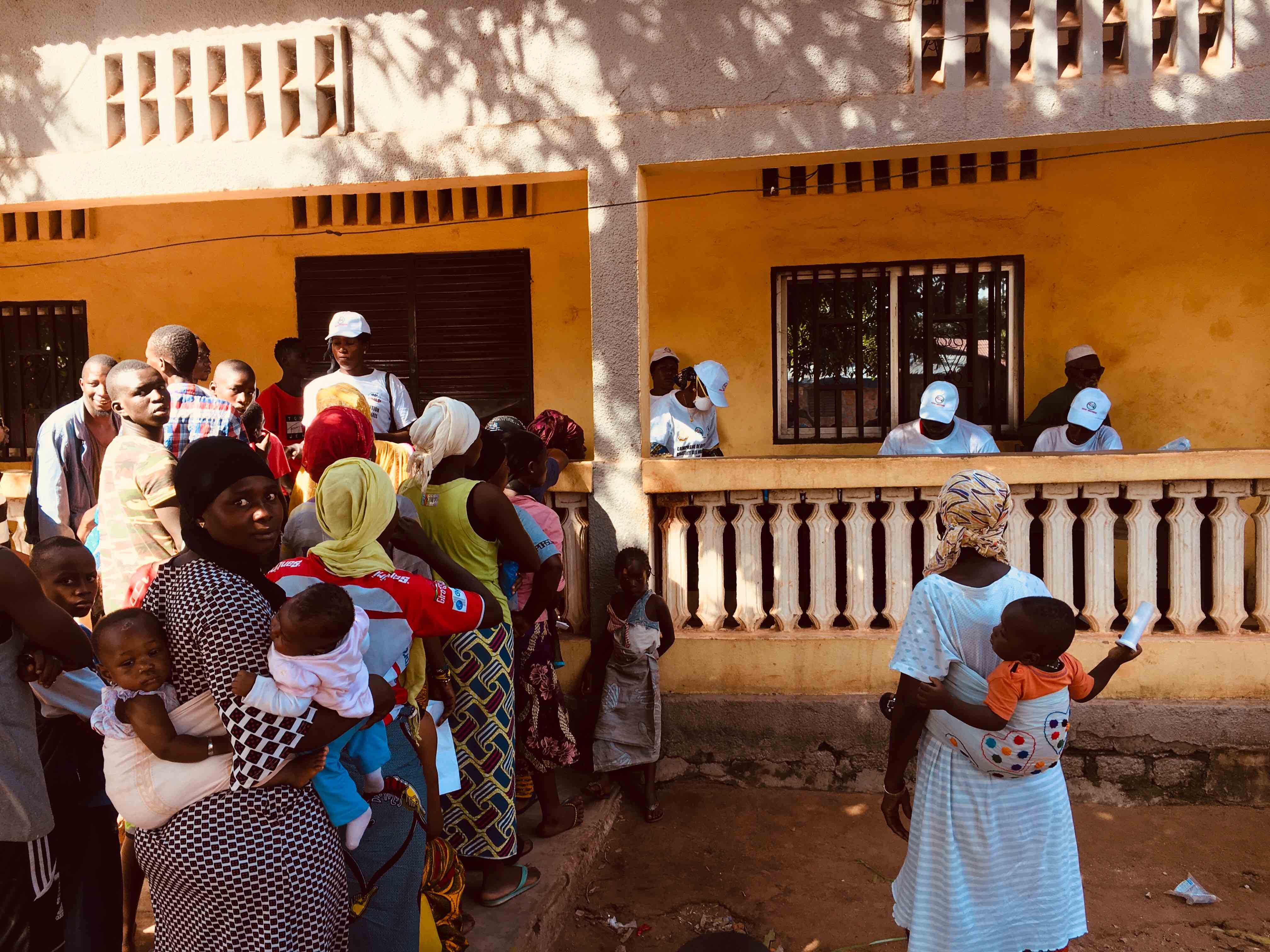
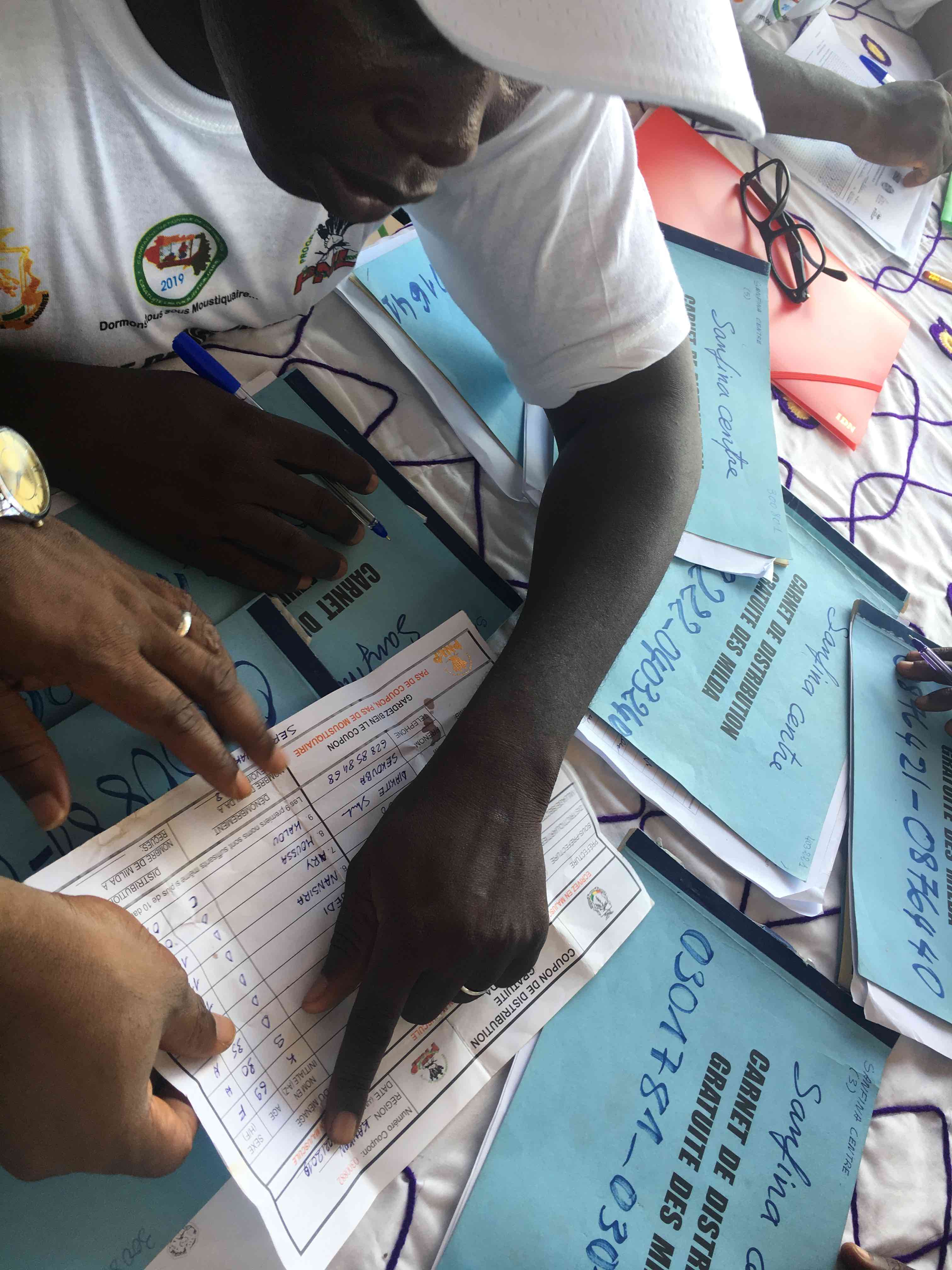
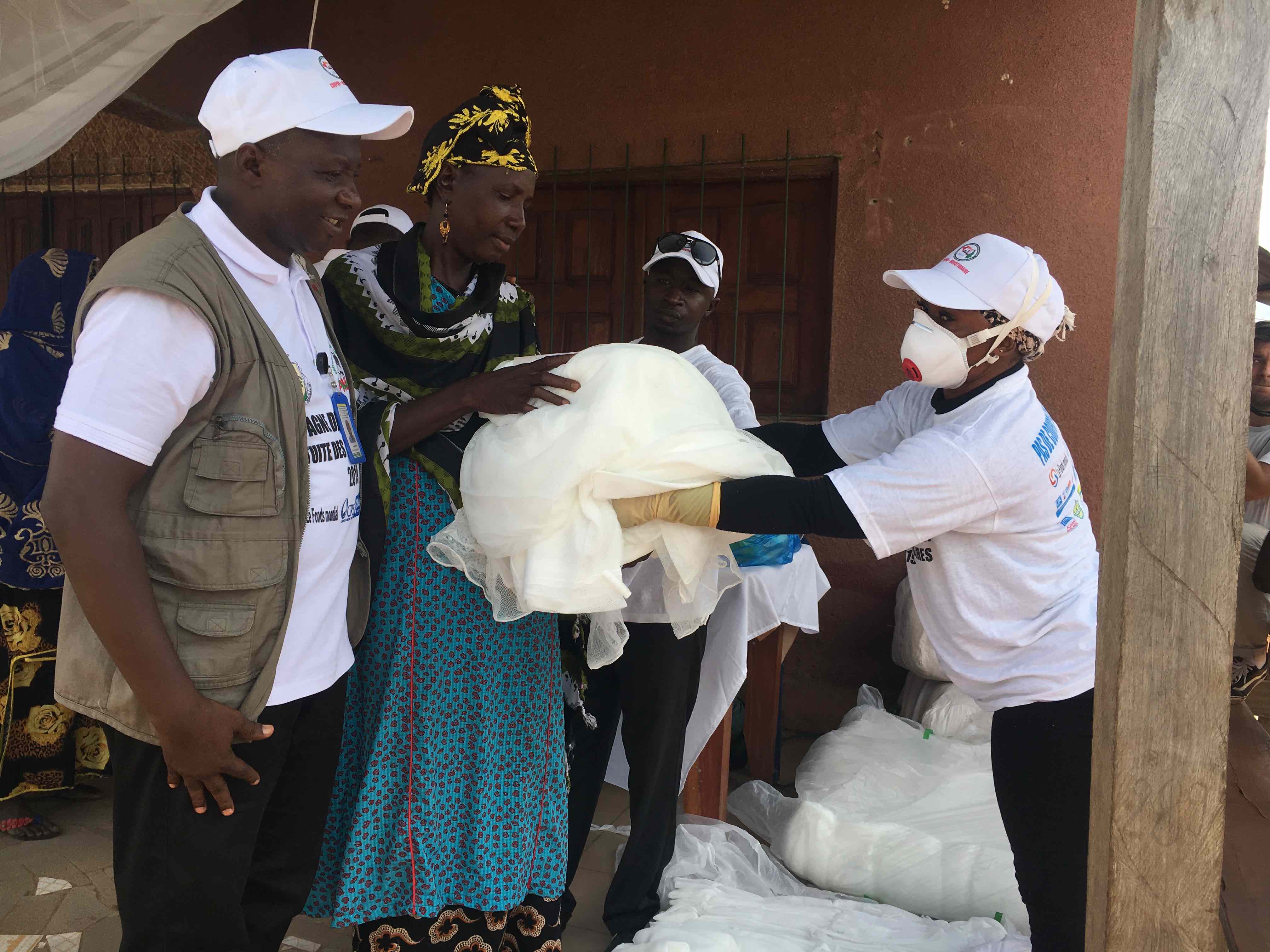

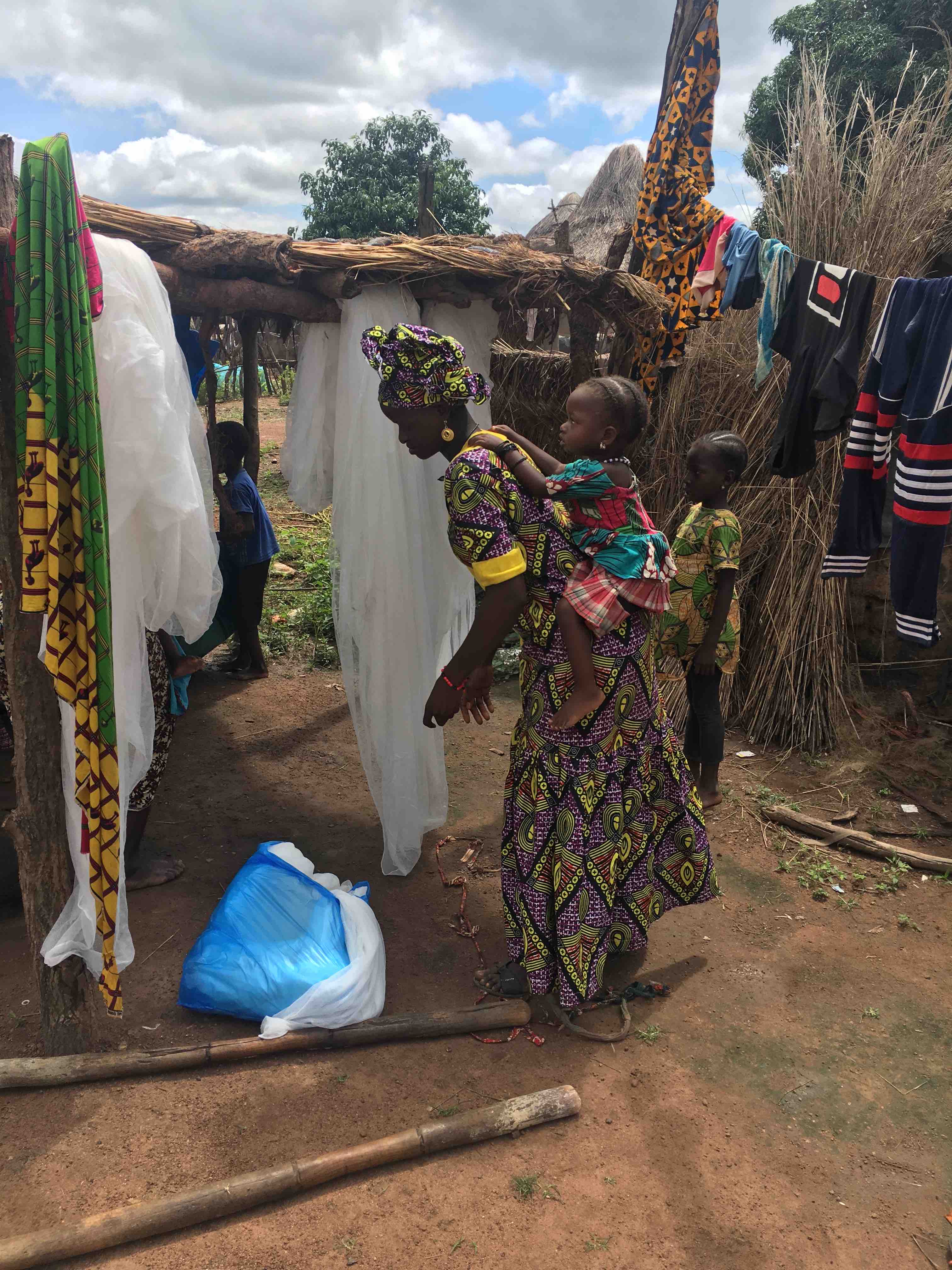
|
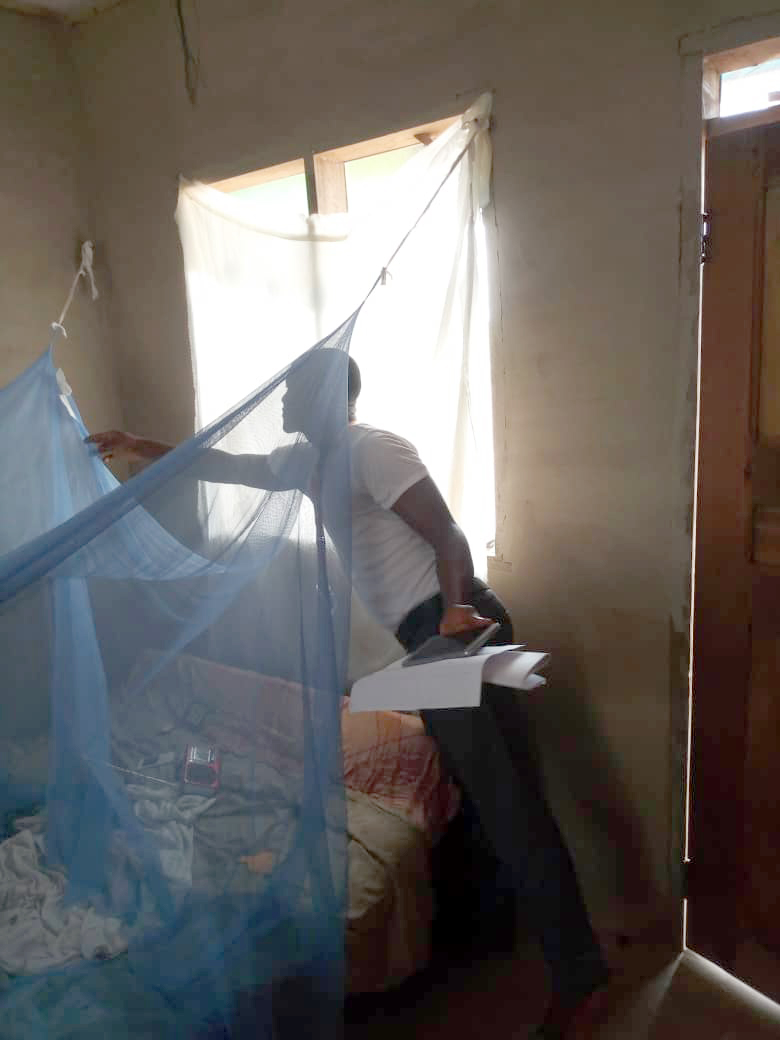 A short update on activities going on in-country this month. We will aim to post a brief update like this each month.
-
In DRC, the registration of 500,000 households in Équateur province is underway and our partner RHA is in the field carrying out independent monitoring of the registration. The distribution of 1.5 million nets is scheduled for September. A further 1.9 million nets will arrive shortly by ship in DRC for distribution in Sud Ubangi province in October. The production of 8.4 million nets is underway with these nets scheduled for distribution in Haut Lomami, Tanganyika and Haut Katanga provinces in December, January and February.
-
In Zambia, our partner CHAZ has just finished a round of post-distribution monitoring (PDM) activities in North-Western province and started data entry yesterday so that all records will shortly be in electronic form and ready for independent review by the AMF team. 3.0 million nets were distributed in 2018.
-
In Ghana, our partner World Vision is carrying out a PDM in Brong Ahafo region. Data is being collected electronically (see photos). 3.6 million nets were distributed in 2018.
-
In Malawi, we have put in place an agreement with the Red Cross to start PDMs later this month. 4.3 million nets were distributed in 2018.

-
In Guinea, 940,000 nets are arriving in a second shipment and will be distributed in three weeks, completing the distribution of 4.8 million nets
-
In Uganda, the 24-month PDM, i.e. monitoring that takes place 24 months after the distribution of nets in the respective districts, is continuing. Sleeping space coverage at 24 months (partial results) is 84%. 12.7 million nets were distributed in 2017/8.
-
In PNG, the rolling distribution of nets continues (year round activity, province by province) and PDM activity starts this week. In 2019, a total of 1.0 million nets will be distributed.
-
In Togo, the 18-month PDM was carried out in May using electronic devices and showed a sleeping space coverage of 88%. 2.4 million nets were distributed in 2018.
|

We have now reached a total raised of US$200,000,000 since AMF started and the donation that took us past that milestone was one from New York, USA!
This equates to the funding of more than 91 million nets to protect 165 million people and an expected impact of more than 30 million cases of malaria and 65,000 deaths averted.
We have also just passed 439,000 donations received, with this coming from over 121,485 people in 187 countries!
As always, our sincere thanks to everyone for their support and generosity which is both humbling and thrilling. Humbling, given the repeated support of donors and the magnitude of some of the donations, and thrilling in knowing what these donations can achieve.
I am pleased to report we have raised more than US$3,000,000 in the last month from more than 6,487 donations and this has made a dent in the funding we continue to raise to fund the need for further nets in the Democratic Republic of Congo, one of the two most malarious countries in the world, where we have the potential to have a large impact on health outcomes. Donations have ranged from US$1 to US$2,000,000, and they all matter as each US$2 buys a net and helps close the funding gap.
|

The registration has just finished in Guinea of 2.3 million households that will receive nets in the nationwide universal coverage campaign that will take place in April and May 2019. Registration establishes the net need for each household individually.
The four regions that will receive 3.86 million AMF-funded nets are Boké, Faranah, N'zérékoré and Kankan. In these regions 990,000 households were registered in 12 days by 6,900 community health volunteers with management and supervision at sub-district, district and regional level by Guinea's National Malaria Control Programme (NMCP).
A number of data-driven mechanisms are in place to maximize, and provide evidence for, the accuracy of the registration.
- "105% Registration"
Community health workers, coordinated by the NMCP, carry out "105% registration" whereby 100% of the households are visited to establish net need for each individual household, and then a random sample of 5% of the households are re-visited by a separate group of data collectors with no knowledge of the 100% data collected. Importantly, those carrying out the 100% registration are aware re-visits will take place. This acts as a mechanism to encourage accurate registration.
- Independent monitoring
AMF funds an independent organisation to monitor the way the registration is managed and carried out by the NMCP. The 100% and 5% registrations are monitored closely in 40 randomly selected villages. This monitoring provides quantitative and qualitative insight into the registration process and is carried out in the spirit of wishing to know how well things are going, what challenges are faced by the teams carrying out the work and what lessons can be learned for this and future campaigns.
- Independent Village Re-registration (IVR)
An independent organisation, funded by AMF, carries out the whole village re-registration of 40 villages, selected at random, with the very specific objective of recording the details of all households in each of the villages. The data collected can be compared with the 100% registration data. This provides AMF with an independent source of information to help assess the accuracy of the NMCP-led registration.
- Electronification of household records
Household registration data collected on paper are sent to a data entry centre located in the capital, Conakry, where they are entered into AMF's Data Entry System (DES). AMF funds this work, carried out by 400 data entry clerks. This transparent process allows visibility for all partners of household records, and analysis of them. This would not be possible if paper-based records remained at individual health facilities and only summary numbers were sent to the NMCP.
3.5 million nets funded by AMF have now arrived in Guinea. Once the registration data has been analysed, the final number of nets required to ensure complete protection of the population in the four regions will be ordered, produced and shipped to Guinea for distribution in May. This 'split-shipment' approach, with the second quantity shipped guided by actual registration data, allows us to be accurate and not wasteful with the number of nets we fund and distribute whilst ensuring all those that need to be protected receive nets.
|

We have now reached a total raised of US$190,000,000 since AMF started - thanks to a donation from Phoenix, Arizona, USA!
We have also just passed 398,000 donations received, with this coming from over 114,000 people in 187 countries! Closing in on 400,000 donations!
As always, our sincere thanks to everyone for their support and generosity which is both humbling and thrilling. Humbling, given the repeated support of donors and the magnitude of some of the donations, and thrilling to know what these donations can achieve.
I am pleased to report we have raised close to US$10,000,000 in the last month from more than 8,900 donors and this has made a dent in the funding we are hoping to raise to fund the further nets needed in the Democratic Republic of Congo, one of the two most malarious countries in the world, where we have the potential to have a large impact on health outcomes. Donations have ranged from US$2 to US$2.5 million, and they ALL matter, as each US$2 buys a net and helps close the funding gap.
|